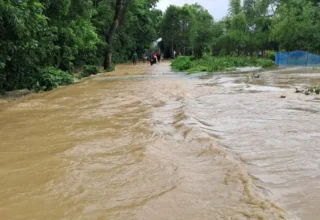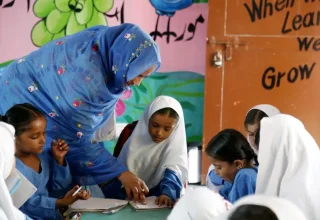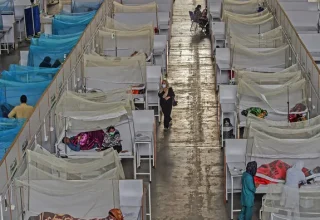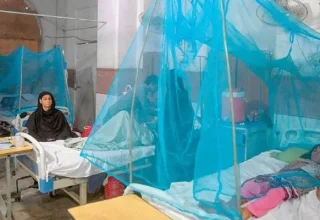
A UBC Okanagan researcher warns that poor eating habits developed during post-secondary studies can lead to future health problems, including obesity, respiratory illness and depression. Dr. Joan Bottorf, a professor in UBCO’s School of Nursing, is one of several international researchers to publish a multi-site study looking at the eating habits of university students.
About 12,000 medical students from 31 universities in China participated in the study, which aimed to determine the relationship between eating behavior, obesity and various diseases. The point is that many bad eating habits start in college and can persist for decades, Dr. Bottorf said.
“We know many students consume high-calorie foods with sugary foods and beverages, and there’s a lot of evidence to show that these eating behaviors can lead to obesity,” said Dr. Bottorf. “These are not the only habits that lead to obesity, but they are important and cannot be ruled out.”
The study, recently published in Preventive Medicine Reports, was led by Dr. Shihui Peng with the School of Medicine at Jinan University in China. While there is well-established research linking unhealthy diets to many chronic diseases, this study aimed to show the link between poor diet and infectious diseases, including colds and diarrhea. Due to the nature of the study, it was not possible to show cause and effect but the relationship between poor diet, obesity and respiratory illness was well supported, Dr Bottorf noted.
There has been biomedical research that supports this link between obesity and infectious diseases, and recently it has been linked to COVID-19,” he added. “We know from some of the recent publications related to COVID-19, obese people were more likely to have serious conditions and outcomes.
Reasons that have been proposed for this increased vulnerability include respiratory impairment due to the stress of being overweight and poor inflammation and immune system. response.”
A typical student diet of high-sugar or high-calorie foods can become a long-term problem because these habits can lead to obesity. Dr Bottorf says there is evidence that stress and anxiety can lead to overeating, but overeating can also lead to stress and depression.
“The bottom line here is that we should not ignore this risk pattern among young people at university.
It is well documented that a significant proportion of students consume an unhealthy diet,” he added. “The type of food they’re eating is linked to obesity. And that can lead to other health problems, not just chronic disease, but infectious disease as well.”
While Dr. Bottorf says students should be taught about healthy eating while at university, the onus should be on schools to provide healthy, affordable food options for all students. “We need to think about the food environment we provide to students. We need to make sure we have healthy food options in our cafeterias and vending machines so they can eat on the go but also make healthy food choices.”
It’s not a problem going unnoticed. UBC Student Wellness and Food Services work together to address food security and food literacy and recognize that a lack of affordable food options, combined with the stresses of university life, can negatively impact student food choices.
Food-insecure students have access to a low-barrier food bank and a meal-sharing program. Meanwhile, UBCO Food Services’ culinary team prioritizes local, organic and sustainably-sourced ingredients and works with a registered dietitian to ensure a wide variety of food options for all diners.
Dr. Bottorf agrees that food options in cafeterias have improved and notes that many vending machines have rearranged drinks so that healthy items are at eye level and sugary choices are reduced.
“I know a lot of post-secondary schools are trying to figure out how we can do better and try to solve these problems,” she adds. “It’s great, because four or five years ago, we weren’t. So, I think we’re on the right path, but I think we’re far from finished.”














































